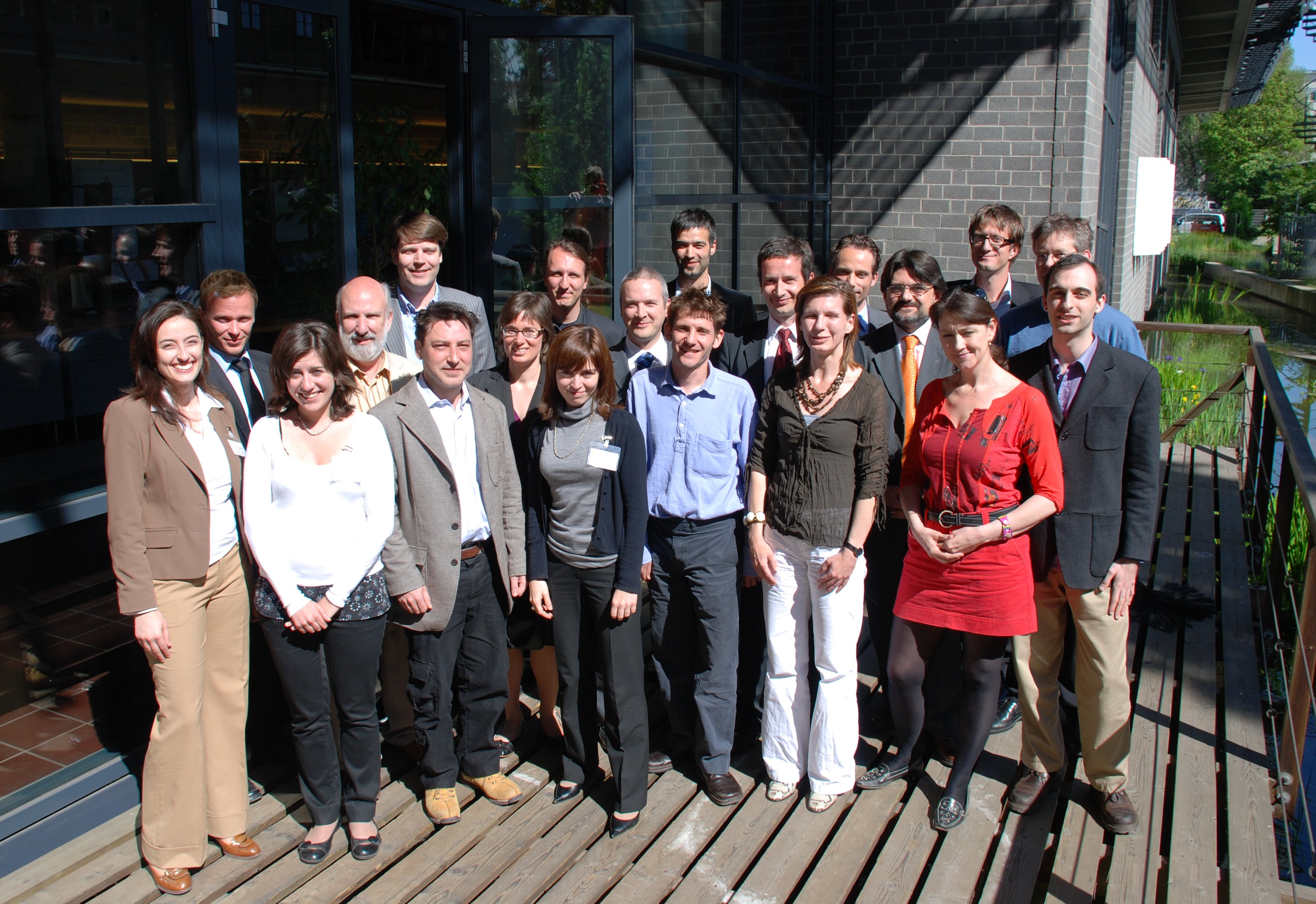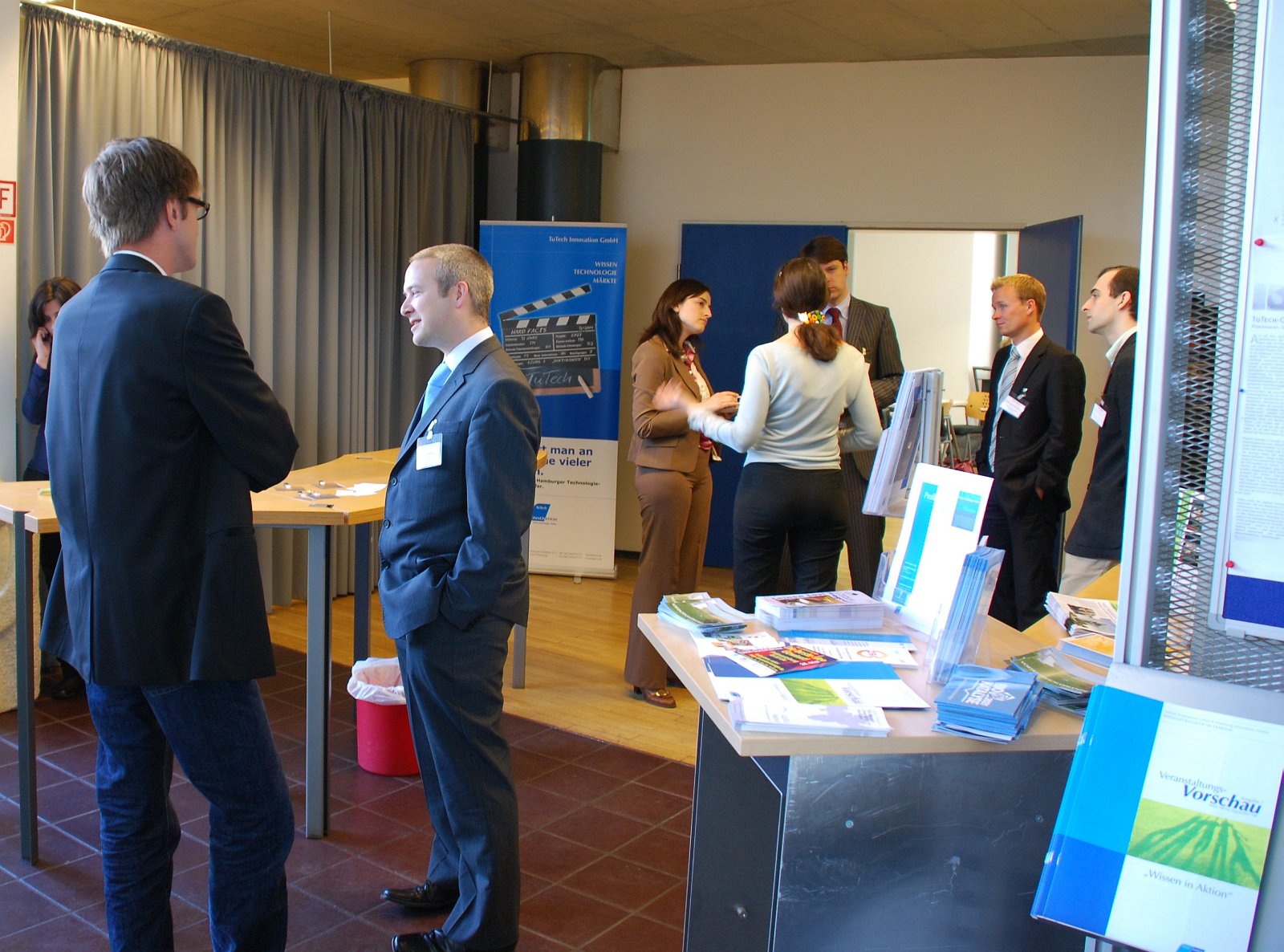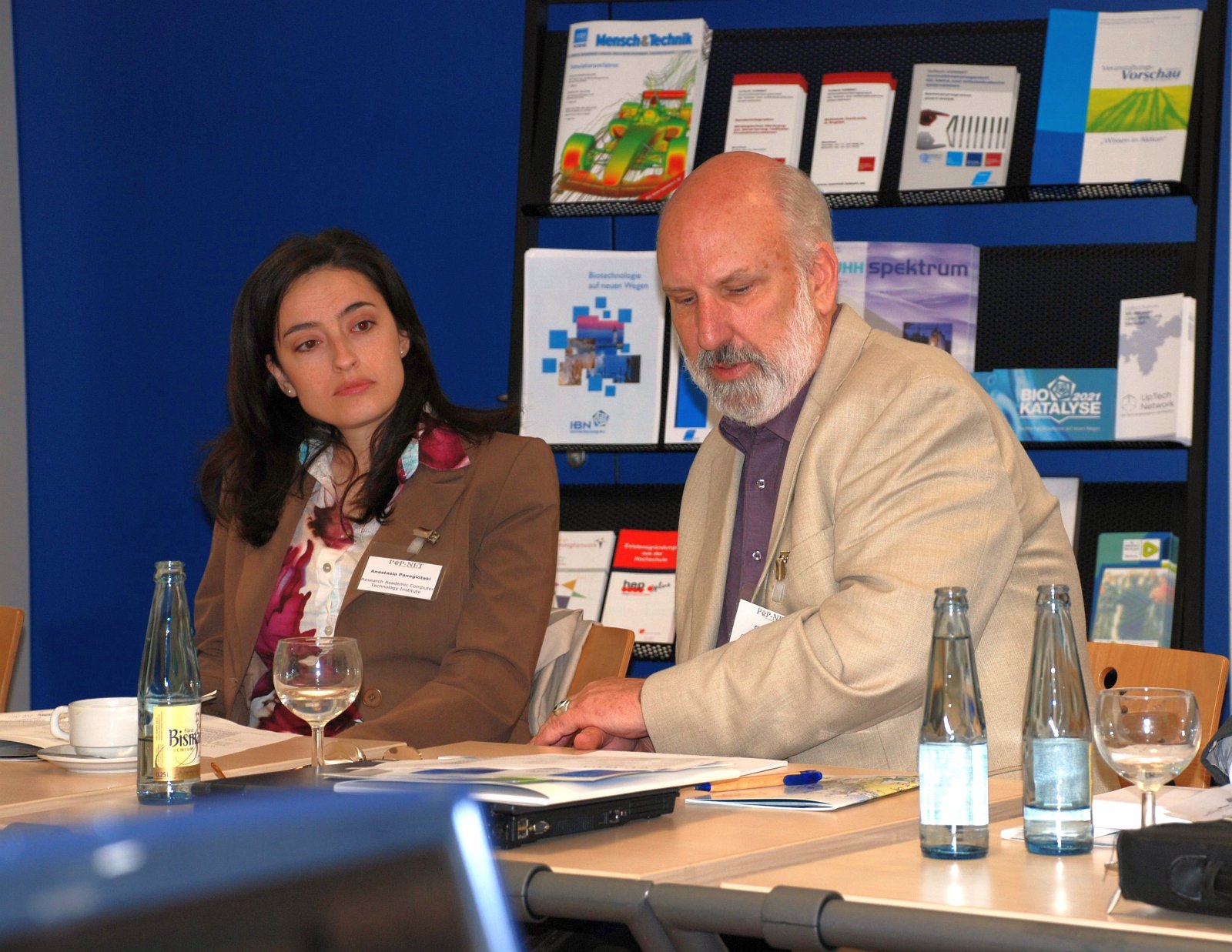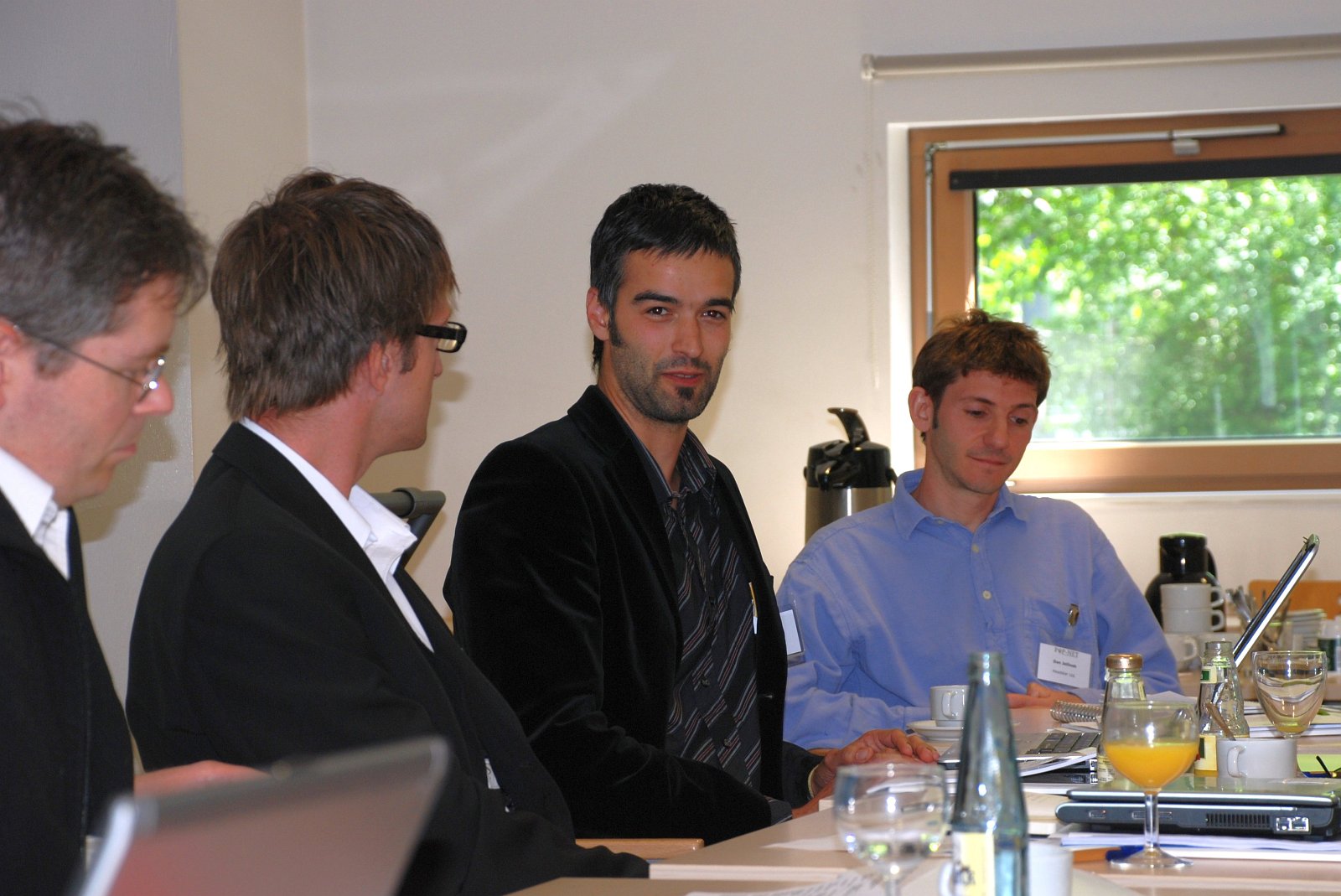PEP-NET kicked off
26. May 2008 – 14:38 by Rolf LuehrsOn Wednesday and Thursday last week the PEP-NET partners came together at TuTech’s premises to start the project. Although some of the partners knew each other already, it was the first time that the entire project consortium met. It became obvious during the two day workshop that the consortium is remarkable in at least three regards:
- the high number of well experienced and well known partners
- the heterogeneity of the consortium comprising public administrations, solution providers, researchers and citizen organisations
- the distribution of the members all over Europe
In the course of the workshop the different partner introduced their organisations and agreed on the activities for the next six months. High priority has this weblog which we will try to develop to one of the visible resources for information about eParticipation in Europe.
It is planned to publish at least one new article/ posting on each working day. The readers of our blog can expect information on eParticipation related events, the description of interesting cases, reports about eParticipation strategies and general discussions about the current state of eDemocracy and eParticipation in the different countries of the European Union. However, we all agreed that a weblog will only considered to be successful if readers comment on the postings. So please feel cordially invited to discuss with us the various issues of eParticipation in Europe.
On the first day of the meeting the consortium has further more split into three different groups to discuss about the expectations, visions and benefits with respect to the PEP-NET project. The result of this exercise was a clear picture on how PEP-NET can serve the interests of its different stakeholder groups and what roles the members are willing to play in order to help PEP-NET taking off. The concrete results will be introduced in separate articles soon.
Finally we discussed also how interested organisations or individuals could join our network and whether PEP-NET should be transformed into a formal organisation. While this discussion will be continued during the next weeks, we encourage all interested parties to apply for membership (info@pep-net.eu). We will contact all applicants and specify the exact terms a.s.a.p.
More to follow soon,
Rolf Lührs
(Coordinator)
P.S.
I have attached some pictures from our kick-off meeting.
Tags: eParticipation, PEP-NET kick-off







7 Responses to “PEP-NET kicked off”
By Julia Glidden on May 27, 2008
Just a quick note to say that the launch Pep-Net meeting really made my head spin - in all the best ways!!
Discussions throughout the meeting raised a number of interesting and challenging issues - but the debate that really got me thinking kicked off with a talk about how to conduct successful e-Consultations.
As a long-standing practioneer in the e-Participation field, I had always assumed that consultations with citizens- ‘e’ or otherwise -were a ‘good thing.’ After two days debating back and forth with the Pep-Net team, however, I realised that I still had some hard thinking to do in this regard…..
In fact, I now wonder whether the recent move toward widespread consultations - as seen in the UK for example in the new ‘duty to involve’ doesn’t actually present new dangers in terms of citizen disillusionment with politics - dangers which might arise from many of us not really thinking through the pros and cons of consultation itself.
I was recently angered, for example, when the former London Mayor conducted a city wide consultation on road charging only to dismiss a 72% vote against his proposed measures with the observation that ‘only the opponents voted.’ And that he ‘only conducted the consultation because he had to.’
At the time, I thought this answer exemplified everything that is wrong with politics. Yet, as Dan Jelnick pointed out in Hamburg, in a representative democracy there is no obligation to act upon the results of a consultation but merely to take the feedback into consideration.
Excellent observation - and one I am embarassed not to have made myself. Nonetheless, this being the case, I am still concerned that many citizens, myself included, do not think these things through when we participate in a consultation. Indeed, we actually assume that government is consulting with us because it genuinely wants to know what we think.
But if governments merely go through the motions of consultation - motions made all the easier by the introduction of ‘e’ - without any real intention of acting upon the outcome then don’t we risk increasing rather than decreasing disillusionment with the democratic process?
More to the point, if representative democracy is all about politicians taking tough decisions regardless of popular opinion then don’t consultations run contrary to this fundamental point?
I realise that this posting steers in and out of the online / offline divide. But as we begin to explore the best ways to conduct a successful e-Consulation, I think it bears thinking about the democratic fundamentals once again.
What do you think?
By Fraser on May 27, 2008
Thanks for being such great hosts, really enjoyed the kick-off meeting.
Managed to do a tour of the German Bundestag afterwards and was really impressed. I didn’t realise it was the most visited parliament in the world!
I wonder why, when ePetitions are so successful on a national scale in Germany, they are not adopted more frequently by local administrations?
By Tim on May 27, 2008
The International Association for Public Participation (IAP2) has a nice overview of what they call the “Spectrum of Public Participation” (PDF download, 622 KB). They describe the goal of consultations as “to obtain public feedback on analysis, alternatives and/or decisions” where the promise to the public is to merely “keep you informed, listen to and acknowledge concerns and aspirations, and provide feedback on how public input influenced the decision.” Specifically, consultations — according to IAP2’s definition — do not promise to “implement what you decide.”
Most likely, however, your average citizen participant will be completely unaware of these nuances, so education, transparency and overall pro-active expectation management with regard to what impact realistically the participants can expect seems essential.
By POLITECH on May 27, 2008
Thank you to our gr8 co-ordinator team to have managed to host us in Hamburg and make us feel like we were in Venice !!
Looking forward to welcome you all in Brussels…
By Rolf Lührs on May 28, 2008
@ Julia
The question how the results of consultation between government and citizens will be implemented is crucial and has to be clearly addressed in any case. However, the meaning of implementation is not the same for the different eParticipation instruments. If we look at those which allow citizens just to vote for or against a certain issue, like e.g. the way ePetitions have been used for road pricing in No 10, everything is focussed on whether the politicians will decide accordingly.
In case of more deliberative e-consultations the situations is slightly different. Chances are that the online consultation will catalyse an opinion shaping process, with sometimes surprising results. At the same time these results are normally much more complex and ambivalent. There is so much more than just the question of implementing the outcomes on a one to one base - ideally the development of new and unanticipated solutions to old problems. Because the outcomes are hard to predict deliberative consultations are at the same time not that easy to be instrumentalised by any party
@ Tim
“Expectation management” - I really like this term. However to manage expectations is very easy said and much harder done. We have experienced that citizens were criticising e-consultations although it has been very clearly stated what kind of political impact could be expected. Some criticised that the political influence has been much to weak and the whole exercise is nothing than symbolic politics. Others reminded that we are living in representative democracy where elected politicians should decide where to go and not uninformed citizens. What makes it hard to deal with is that you never no whether hidden agendas are behind these arguments. People may criticise the approach - but the true reason for this can be that they are not agreeing with the results.
By Julia on May 29, 2008
Important distinction Rolf - ie between the simple for/against consultation as seen in most offline consultations and the more deliberative processes that online consultations make possible. The distinction definitely supports the case for use of more creative and informative online consultations. My suspicion, however, is that this more complex process is not one to be readily adopted by the type of public administrator we need to caution against ie the one who simply goes through the consultation motions because he/she has to. In this regard, I do think we need to be careful not to operate on the implicit assumption that is so frequent in many of discussions that consultations in and of themselves are necessarily ‘good.’
Tim - thanks for pointing out the guidelines. They are clear and to the point - and I will certainly refer to them in future consultation work that I conduct. But I think you are dead right - as the nuances underpinning these guidelines are likely to be lost on the average consultation participant ‘expectation management’ - particularly in the context of existing democratic structures - is vital.